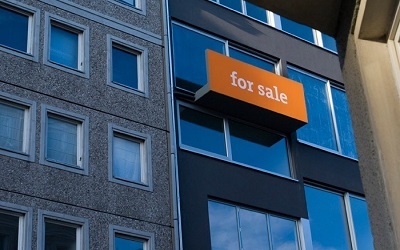澳洲很多华人都从事房地产相关工作,墨尔本悉尼文波PTE很多学生也是,而且大家都要买房租房
。今天墨尔本悉尼文波PTE培训学校的小编就给大家挑一篇Financial Review关于澳洲公寓价格的文章,值得一读。下面开始:
Australia’s apartment market is self-correcting with fewer projects in the pipeline(即将推出), but won’t crash, according to Andrew Schwartz, the co-founder and managing director of real estate investment firm Qualitas.
“The market has been self-correcting(一直在自我纠正) some time, since about the start of the year, ” Mr Schwartz told the Australian Financial Review.
But he said the Australian market, unlike its foreign counterparts, has certain qualities that allow it to self-correct and adjust through a potential period of oversupply.
These included high levels of migration, a well-regulated and conservative funding environment, a demographic shift towards apartment living and low and stable levels of rental vacancy, he said.
The boutique lender(和四大银行对应,借钱给小店的小金融机构), which Mr Schwartz founded with Stockland director Carol Schwartz and her husband, the well-known investor Alan Schwartz in 2008 has financed or invested in $3.5 billion worth of real estate projects, mostly apartment projects,channelling money from(从…转钱) offshore and local high-net worth investors and institutions.
Mr Schwartz said any potential apartment over supply would be short-lived (短命的) and predicted the next growth cycle would occur by 2020.
“By 2020, prices will have risen(将来完成时), especially in Sydney and Melbourne, to support a new round of much-needed development projects,” he said.
“However, we do see some warnings on the horizon(即将来临的) for the short term. This includes increased supply concentrated into specific precincts across Australia, fully priced site values, rising construction costs, lower levels of available construction finance, and curbs on loans(对于贷款的控制) to foreign purchasers and additional taxes for this group,” he said.
His warnings follow prominent Melbourne-based developers – including BRW richlisters Tim Gurner, Ashley Williams and Jonathan Hallinan – warning of tougher funding conditions, slowing apartment sales and a blow-out in settlement times. Construction costs have also surged in Brisbane’s overheated (过热的)apartment market.
BIS Shrapnel’s Angie Zigomanis said he expected Melbourne apartment sales to decline further following a 13 per cent fall in high-rise building approvals and a drop in investor lending.
“There’s a big pipeline of apartments coming through and there are concerns about there being too many of them,” Mr Zigomanis said.
As market conditions become tighter, Qualitas has become increasingly active in both mezzanine debt and equity developer funding following the major banks’ reducing their exposure to the apartment market.
In February, it closed a $200 million opportunity fund. Some of this money has already been allocated to projects including $33.5 million of debt funding for a Southbank high-rise tower in Melbourne and $15 million of equity funding for an inner-city Brisbane townhouse development.
“We’re having a great year in debt financing, but our volumes of new equity are much lower relative to previous years.”
“The drop in new projects is due to a number of reasons, but mostly because site values have well and truly peaked, making development feasibilities subject to strain(让发展可能性捉襟见肘). Coupled with(辅以) higher construction costs and longer project timeframes, it’s hard to make the numbers stack up in the current environment based on recently market site values.”
备注:
if a plan, idea, or event is in the pipeline, it is being prepared and it will happen or be completed soon
 More job losses are in the pipeline.
More job losses are in the pipeline.
